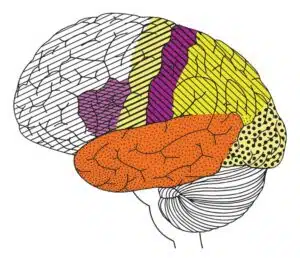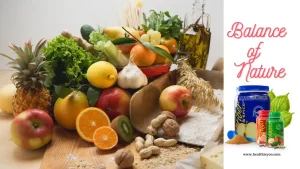Addiction recovery is a complex and challenging journey that requires a holistic approach to healing. While therapy, support groups, and counseling play pivotal roles in overcoming addiction, the significance of nutrition in this process often goes overlooked. Proper nutrition can greatly enhance the recovery process by providing essential nutrients, promoting physical and mental well-being, and reducing cravings and withdrawal symptoms. We delve into important facts about the role of nutrition in addiction recovery and shed light on how a well-balanced diet can positively impact individuals striving to maintain sobriety.
Nutrient Deficiences and Addiction
One significant aspect of addiction is the toll it takes on the body, leading to nutrient deficiencies. Substance abuse can disrupt the absorption, storage, and metabolism of crucial vitamins and minerals. These deficiencies not only weaken the body’s immune system but also impair brain function, contributing to mood disorders, anxiety, and a compromised ability to cope with stress. By addressing nutrient deficiencies, individuals in recovery can enhance their overall well-being and support their mental health.
By addressing nutrient deficiencies through a balanced and nutrient-rich diet, individuals in recovery can enhance their overall well-being, support their mental health, and improve their cognitive function and emotional resilience. Restoring adequate nutrient levels in the body promotes the healing of tissues and organs, boosts energy levels, and enhances the body’s natural detoxification processes, ultimately aiding recovery and increasing the chances of sustained sobriety.
Balancing Blood Sugar Levels
Addiction often leads to imbalances in blood sugar levels, which can further exacerbate cravings and mood swings. A diet rich in complex carbohydrates, lean proteins, and healthy fats helps stabilize blood sugar levels, promoting more stable moods and reducing the likelihood of relapse. Including foods with low glycemic indexes (1), such as whole grains, legumes, and fresh fruits and vegetables, can provide sustained energy and prevent sudden spikes and crashes in blood sugar levels.

Neurotransmitter Production and Mental Health
Optimal mental health plays a critical role in addiction recovery. Nutrition directly influences the production and functioning of neurotransmitters in the brain, such as serotonin, dopamine, and GABA, which are essential for regulating mood, motivation, and reward systems. Including foods rich in amino acids, omega-3 fatty acids, and vitamins B6 and B12 can help promote healthy neurotransmitter production, improving mental well-being and reducing cravings.
Supporting Physical Recovery
Addiction takes a toll on the body, often resulting in weakened immune systems, compromised organ function, and damaged tissues. A balanced diet that includes essential nutrients, such as vitamins A, C, and E, zinc, and antioxidants, supports the body’s natural healing processes. Proper nutrition aids in repairing cellular damage, boosting the immune system, and facilitating detoxification, allowing individuals in recovery to regain physical health and vitality.
Coping with Stress and Cravings
Stress and cravings are common challenges faced during addiction recovery. This is especially true during the drug detoxification period. It’s important to be aware of the drug detox timeline and how long it will take to feel somewhat stabilized. Knowing this information will help with stress management. Proper nutrition plays a crucial role during this time. Including foods rich in antioxidants, magnesium, and omega-3 fatty acids can help reduce stress and anxiety levels. Moreover, specific nutrients, such as L-glutamine, can alleviate cravings by supporting neurotransmitter balance and stabilizing blood sugar levels. By incorporating these nutrients into their diet, individuals in recovery can effectively manage stress and cravings, increasing their chances of long-term success. Thus, nutrition plays an important role in addiction recovery.
By incorporating regular exercise and stress-reducing activities such as yoga or meditation alongside proper nutrition, individuals in recovery can further enhance their ability to cope with stress and cravings. Engaging in physical activity releases endorphins, which can improve mood and reduce stress. Additionally, practicing mindfulness techniques can provide individuals with valuable tools to better understand and manage their cravings, ultimately supporting their overall well-being in the recovery process.
The Role of Gut Health
Emerging research has highlighted the strong connection between gut health and mental well-being. The gut-brain axis is a complex network that influences mood, behavior, and addiction. A diet rich in prebiotics and probiotics promotes a healthy gut microbiome, enhancing nutrient absorption, supporting immune function, and improving mental health. By nurturing a healthy gut, individuals in recovery can optimize their overall well-being and increase their resilience against relapse.
Nutritional Strategies for Addiction Recovery
In addition to understanding the importance and role of nutrition in addiction recovery (3), it is essential to implement practical strategies to support individuals on their journey. Here are some key nutritional strategies to consider:
1. Meal Planning
Creating a structured meal plan can help individuals in recovery establish healthy eating habits, ensure balanced nutrition, and avoid impulsive food choices. Meal planning also provides a sense of routine and control, which is beneficial during recovery.
2. Whole Foods Approach
Emphasize whole, unprocessed foods in the diet. These include fruits, vegetables, whole grains, lean proteins, and healthy fats. Whole foods provide a wide range of nutrients and minimize the intake of additives, preservatives, and refined sugars that can negatively impact mood and overall health.
3. Hydration
Staying properly hydrated is essential for overall health and recovery. Drinking adequate amounts of water (2) supports digestion, detoxification, and cognitive function. Encourage individuals to consume water throughout the day and limit sugary beverages.
4. Mindful Eating
Encourage individuals to practice mindful eating, which involves paying attention to hunger and fullness cues, savoring the flavors and textures of food, and eating without distractions. Mindful eating promotes a healthy relationship with food and helps prevent overeating or emotional eating.
5. Professional Guidance
Collaborating with a registered dietitian or nutritionist specializing in addiction recovery can provide personalized guidance and support. These professionals can help develop tailored nutrition plans, address individual nutrient needs, and provide ongoing education and counseling.
Holistic Approaches to Nutrition and Recovery
In addition to focusing on specific nutrients and dietary strategies, adopting a holistic approach to nutrition and recovery is important. This includes addressing the emotional, psychological, and social aspects of food and nourishment. Here are some key considerations:
Emotional Eating
Many individuals turn to food for comfort or as a coping mechanism during times of stress or emotional distress. Addressing emotional eating patterns and developing alternative coping strategies that do not involve food is essential. Encourage individuals to seek support from therapists or support groups to address underlying emotional issues.
Social Support
Eating in a supportive environment can positively impact recovery. Encourage individuals to seek out sober social activities and connect with others who prioritize health and well-being. Sharing meals with friends, family, or support groups can provide a sense of community and reinforce healthy eating habits.
Self-Care
Encourage individuals to incorporate self-care practices into their daily routines. This can include engaging in physical activity, practicing mindfulness or meditation, getting adequate sleep, and managing stress through relaxation techniques. These self-care practices support overall well-being and help individuals maintain a positive mindset during their recovery journey.
Individualized Approach
It is important to remember that nutrition needs vary from person to person. Each individual may have unique dietary requirements, preferences, and challenges. Encourage individuals to listen to their bodies, pay attention to how different foods make them feel, and make adjustments accordingly. A personalized approach to nutrition ensures that individuals nourish their bodies in a way that suits their needs and supports their recovery goals.

Conclusion
Recognizing the importance of nutrition in addiction recovery is essential for fostering comprehensive healing and long-term sobriety. Individuals can significantly enhance their recovery by addressing nutrient deficiencies, balancing blood sugar levels, supporting mental and physical health, and nurturing gut health. Incorporating these key facts into treatment programs and supporting individuals in making healthy dietary choices can ultimately improve outcomes and provide a solid foundation for a fulfilling life free from addiction.
Resources

Emily Thompson
Related Posts



The External Forces Against Your Health – 4 Action Steps To Be Healthier Than Ever




